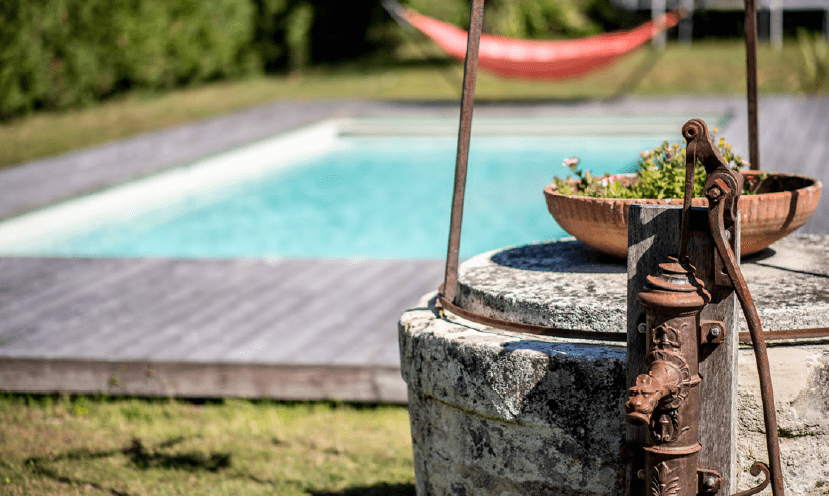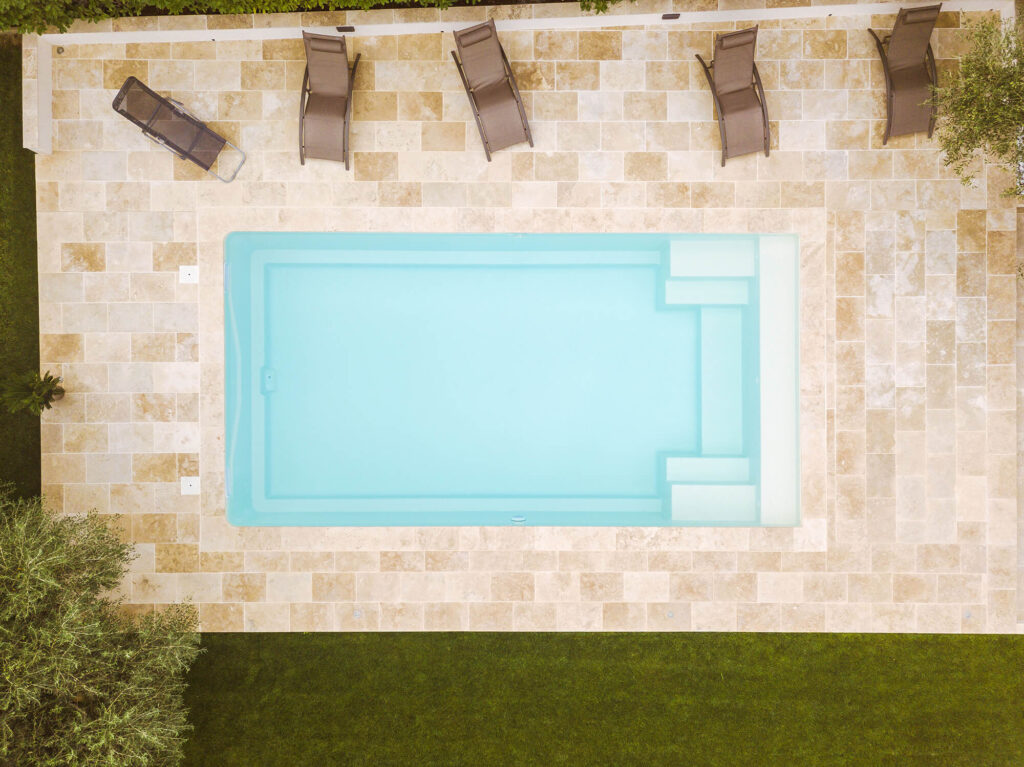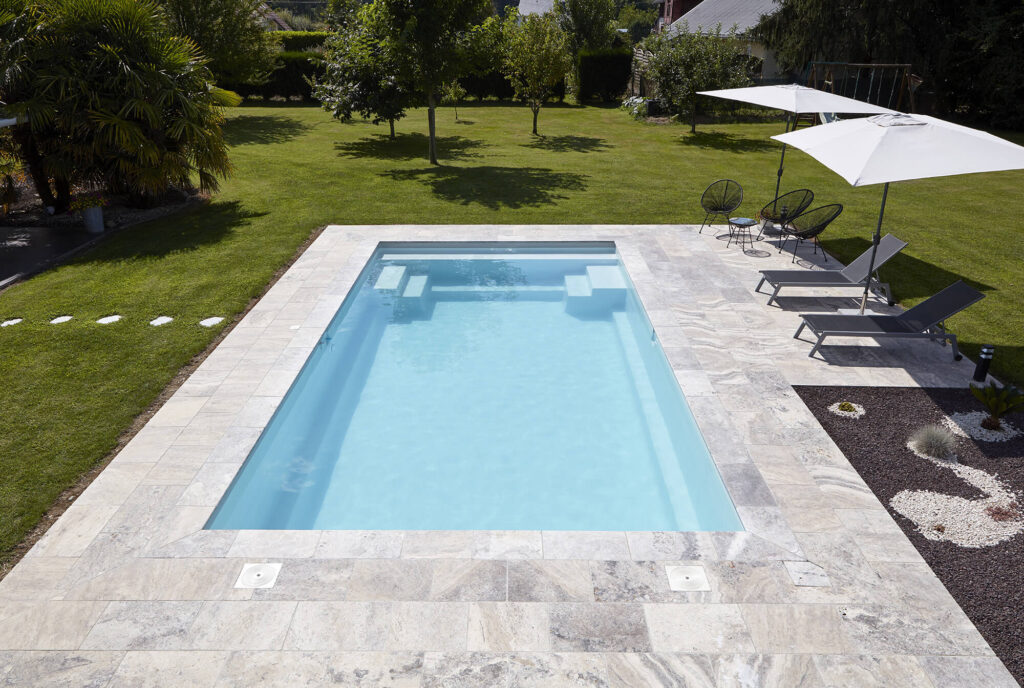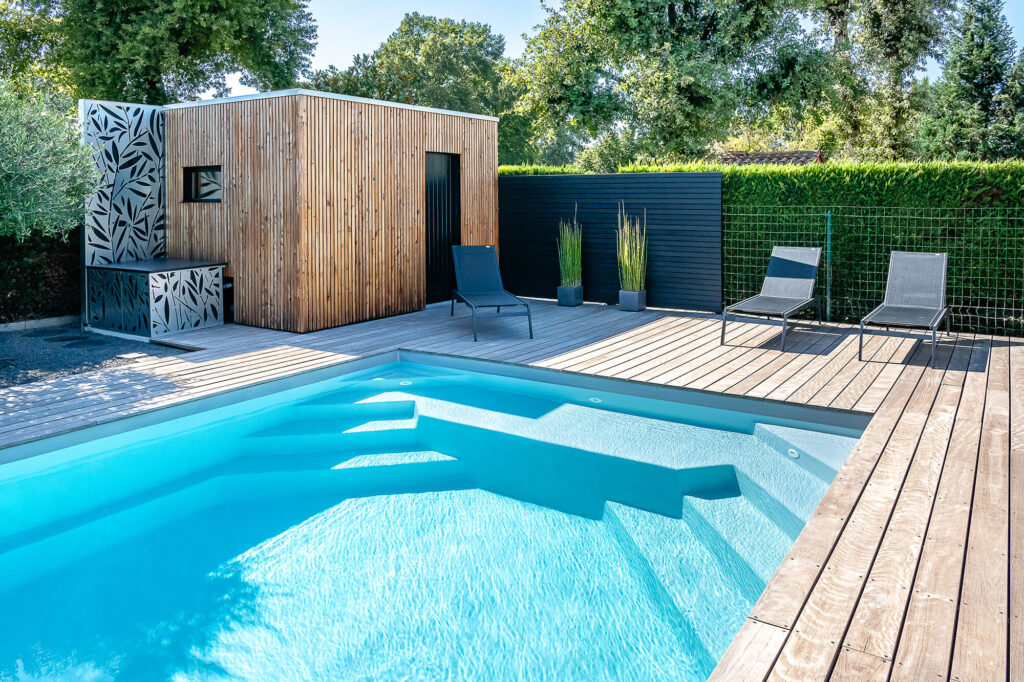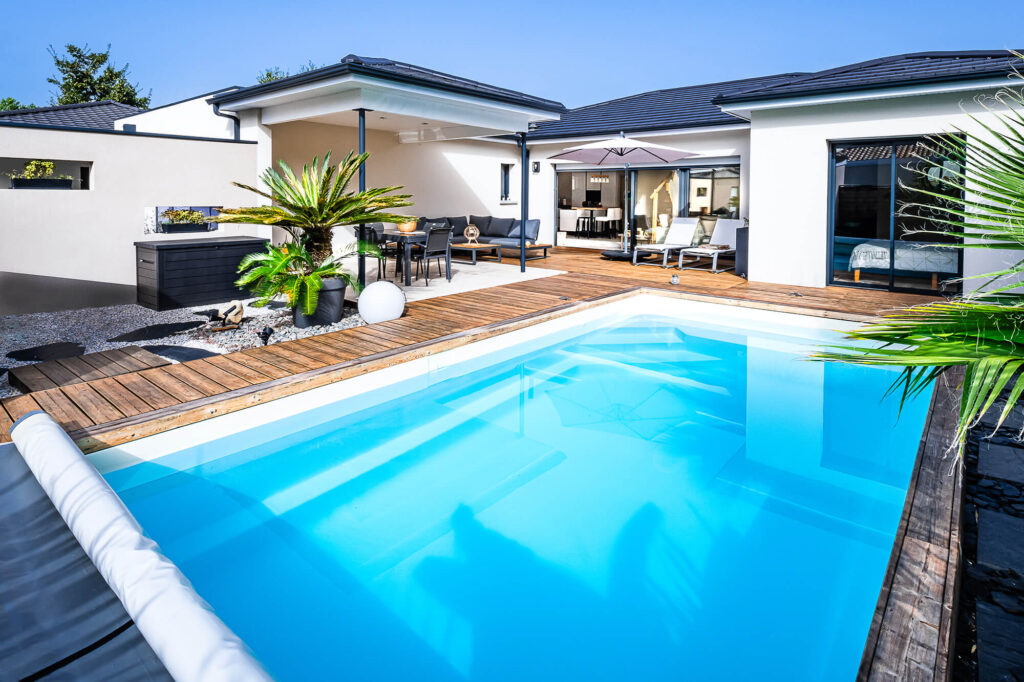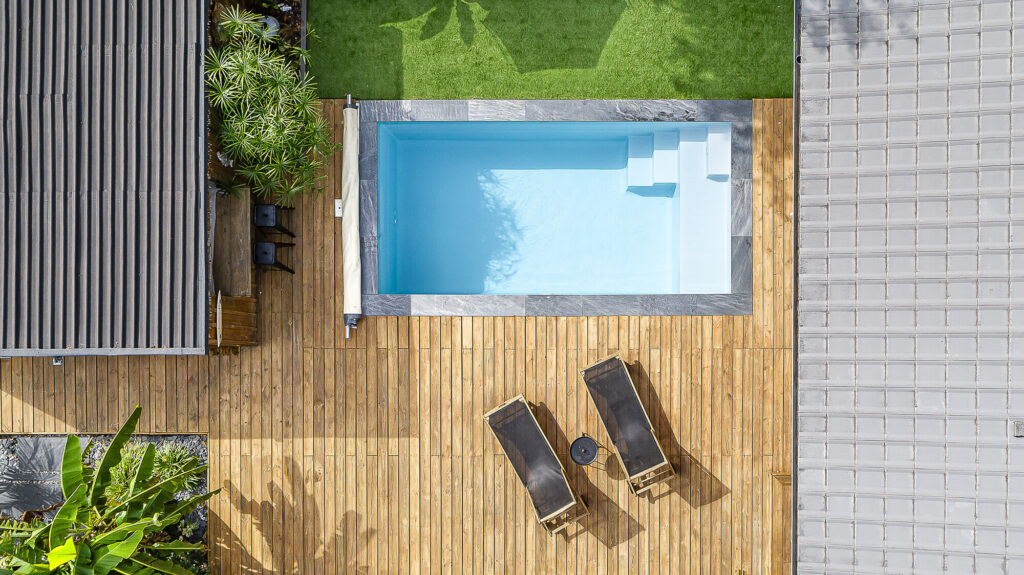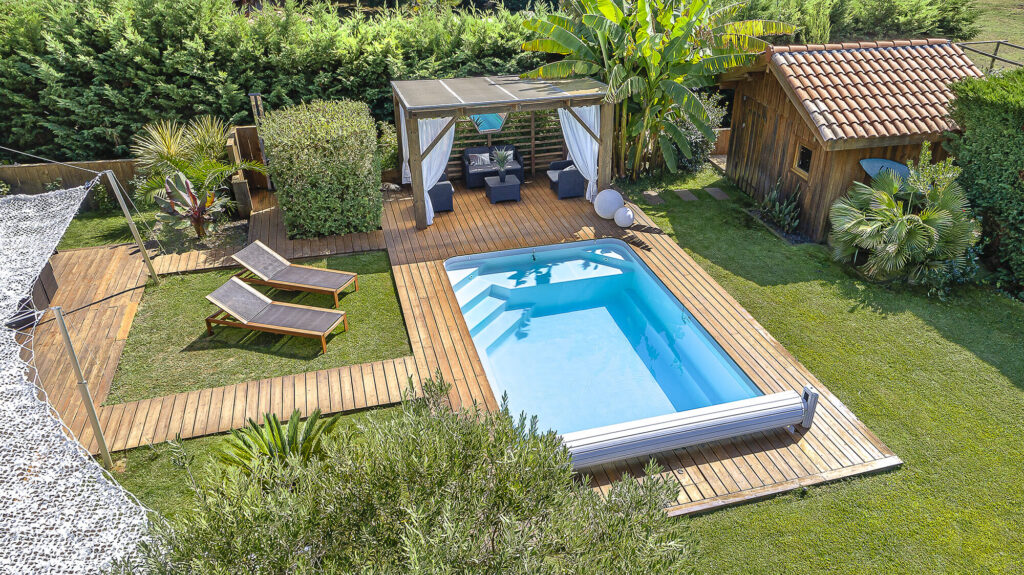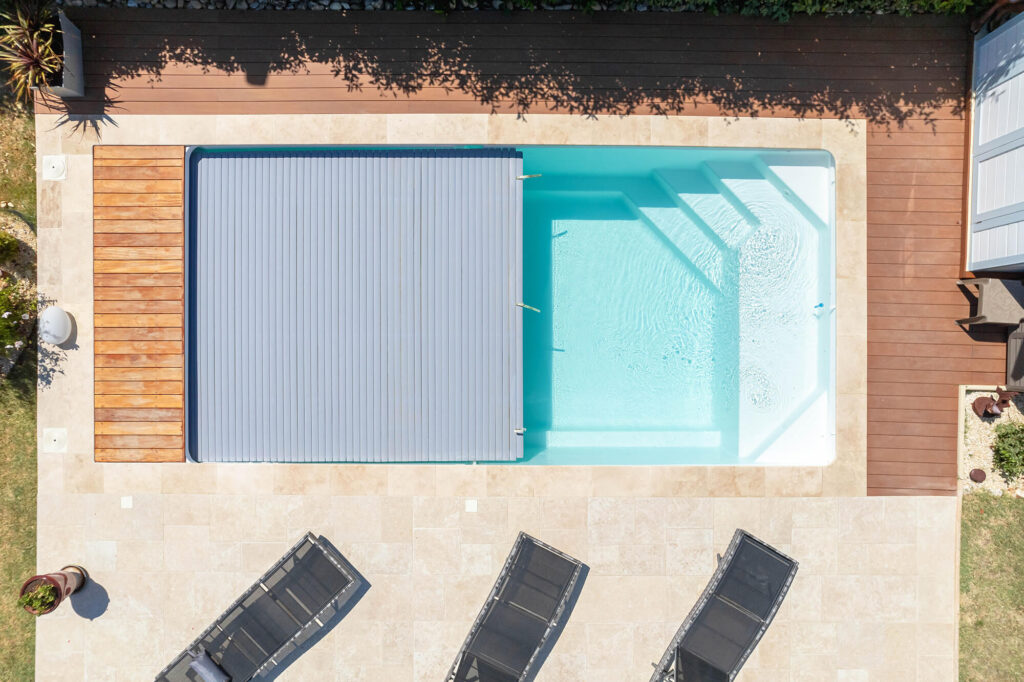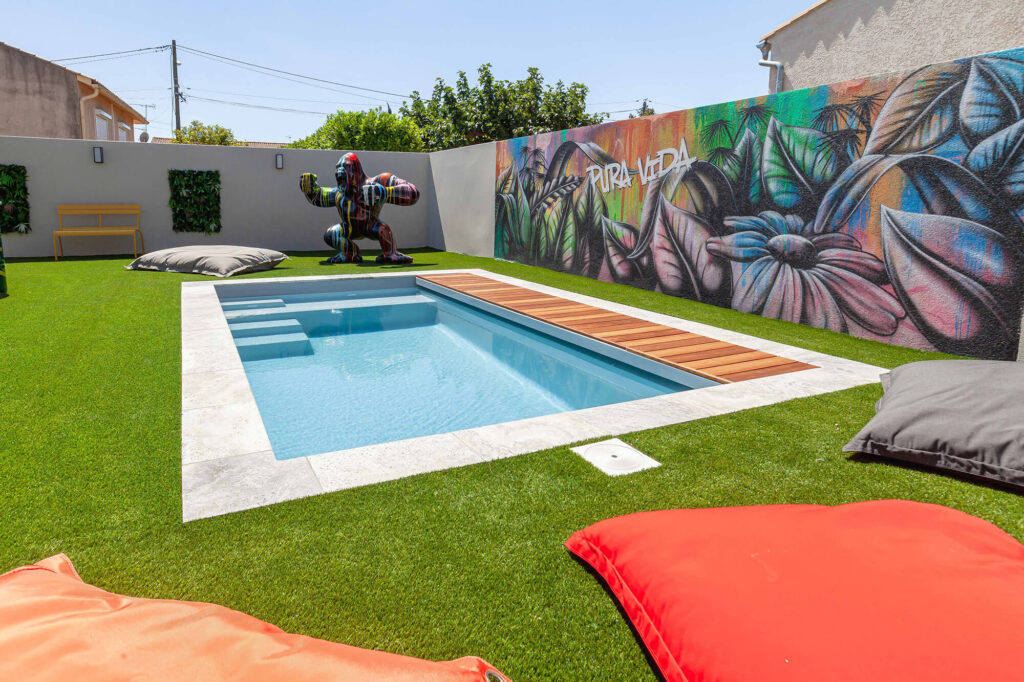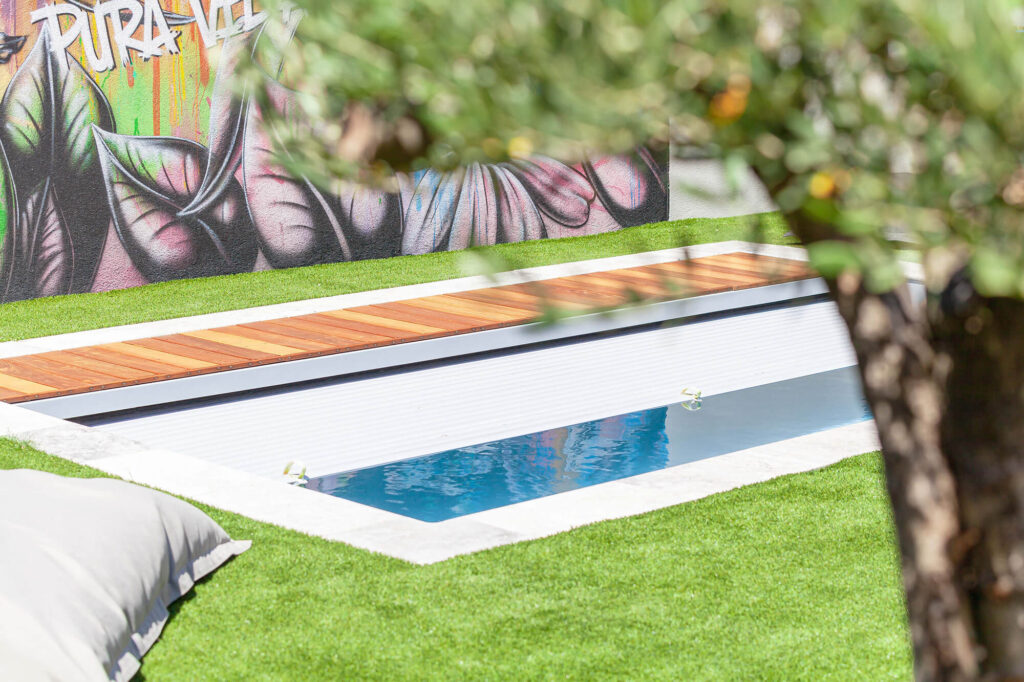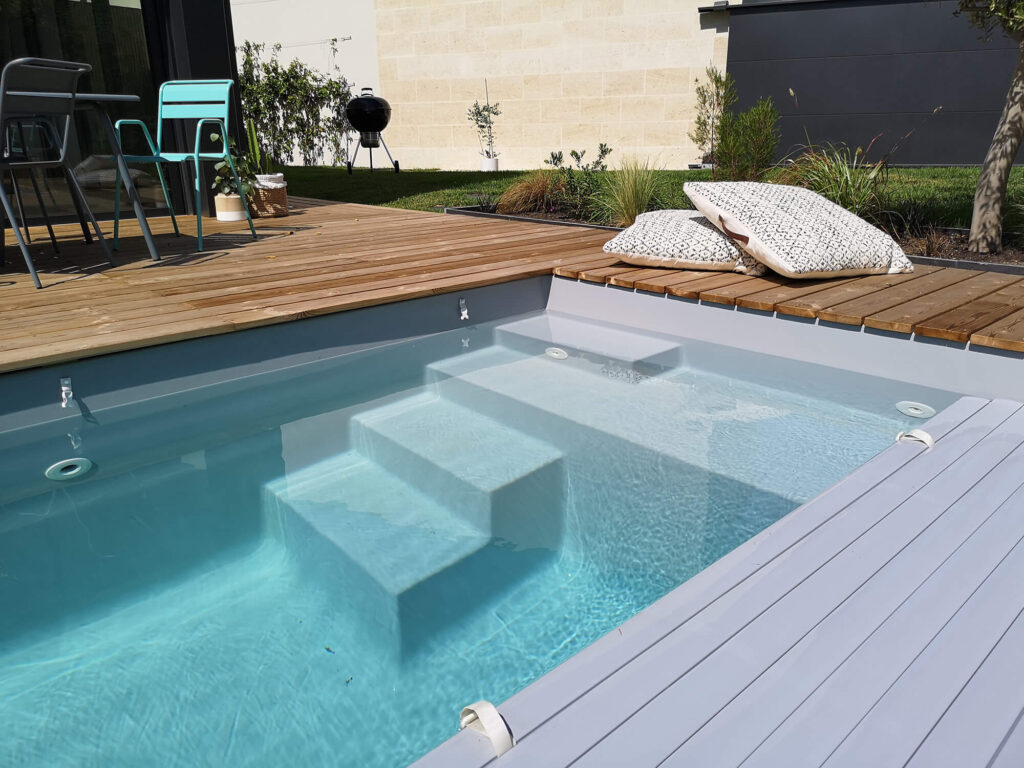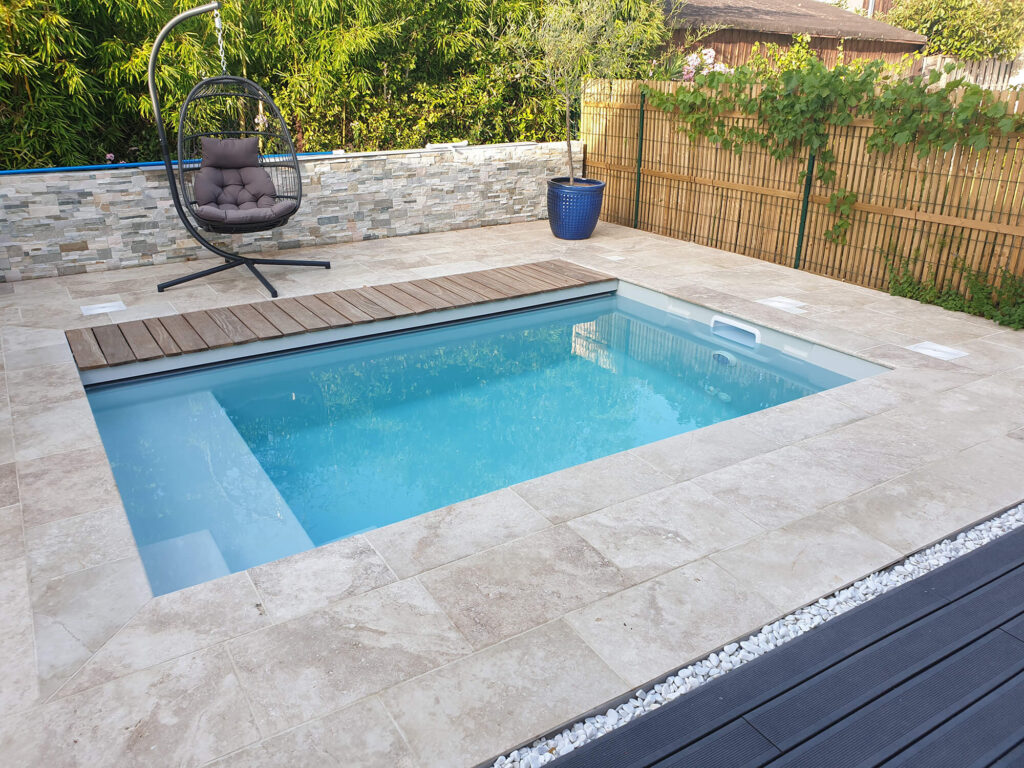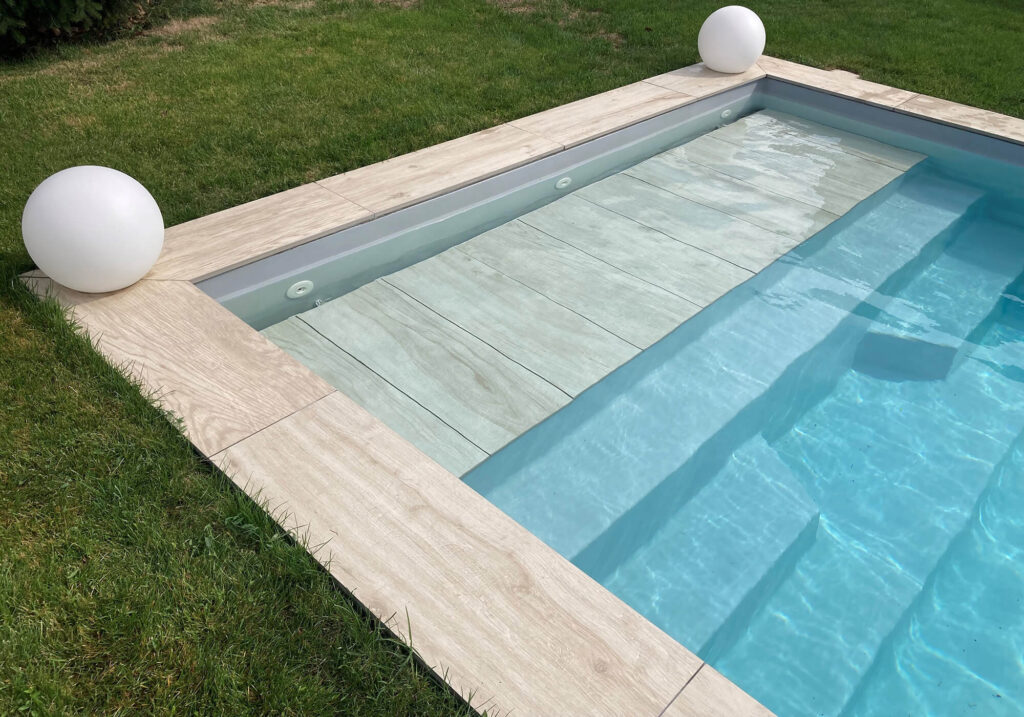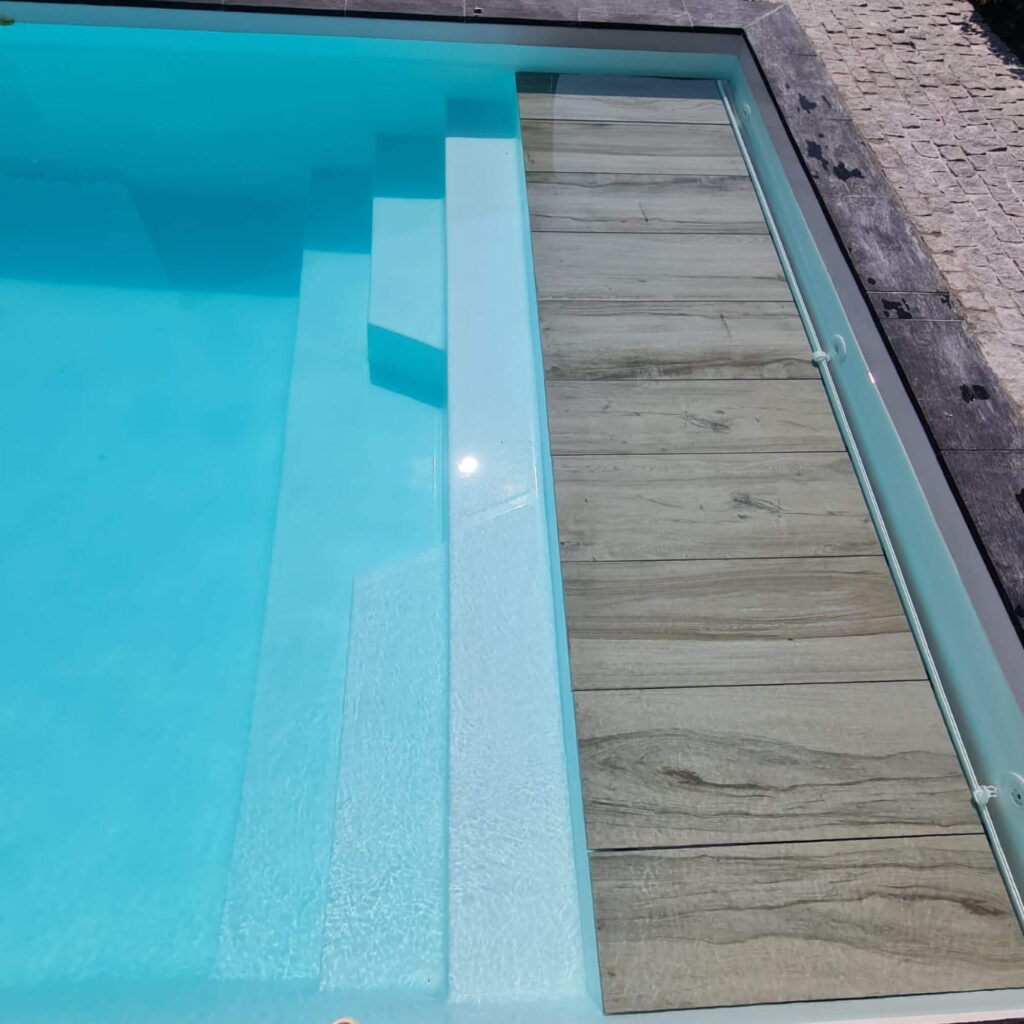Calculating the volume of water in your pool is necessary to make the right choice regarding maintenance equipment, but also the dosage of products to use for cleaning your pool. Let's look at how to make this very important calculation.
Why calculate the volume of water in your pool?
Knowing the volume of water in your pool is essential! The filtration system, and in particular the pump, must be adapted to the volume of water, in order to purify the water effectively. It must be sufficiently powerful: the volume of water in your pool is a determining criterion for making the best choice.
The dosage of maintenance and treatment products also depends on the volume of water in your pool . The risk of overdosing is therefore increased, if you do not know the volume of water in the pool, this can be dangerous. If, on the contrary, you do not use enough product, the pool water may not be healthy, with abnormal pH, hardness and alkalinity.
How to do it?
Start by considering the shape of your pool , as well as its average depth.
The first step is to calculate the average depth , by adding the maximum depth with the minimum depth, then dividing the result by 2.
If your pool is square or rectangular, multiply the length by the width and the average depth.
In the case of a round pool, you need to measure the two diameters of the pool. Then, you need to multiply the two diameters with the average depth and 0.78.
If you have an oval pool, multiply the length by the width and 0.89.
If your pool is free-form, you can multiply the length, width, average depth and 0.85 to find its water volume.
Note that the results will be expressed in m3.
What impact can the volume of water in your pool have?
The volume of water contained in your swimming pool can have impacts on consumption, legislation and also installation.
Consumption
The volume of water in your pool will have an impact on consumption . Operating costs depend on the power, but also on the quantity of products used, as well as heating.
Please note that the price of m3 of water varies depending on the supplier and the region. However, the water in your swimming pool needs to be partially renewed, so there is no total change of the pool water.
To avoid losses and save water, you can clean the pool filter regularly. Another option is to use a tarpaulin to prevent evaporation.
Legislation
The owner of a swimming pool must carry out control actions, in particular by ensuring that it has efficient filtration and that its water is renewed (30 L per swimmer per day). Compliance with health standards includes in particular the operations of supply, treatment, filtration, disinfection, adaptation of the duration of the water cycle according to the volume and use of the swimming pool.
Facility
Installing a pool with a large volume of water will be more expensive than a small pool. But that seems obvious 😉
Configure your pool online Back to all news